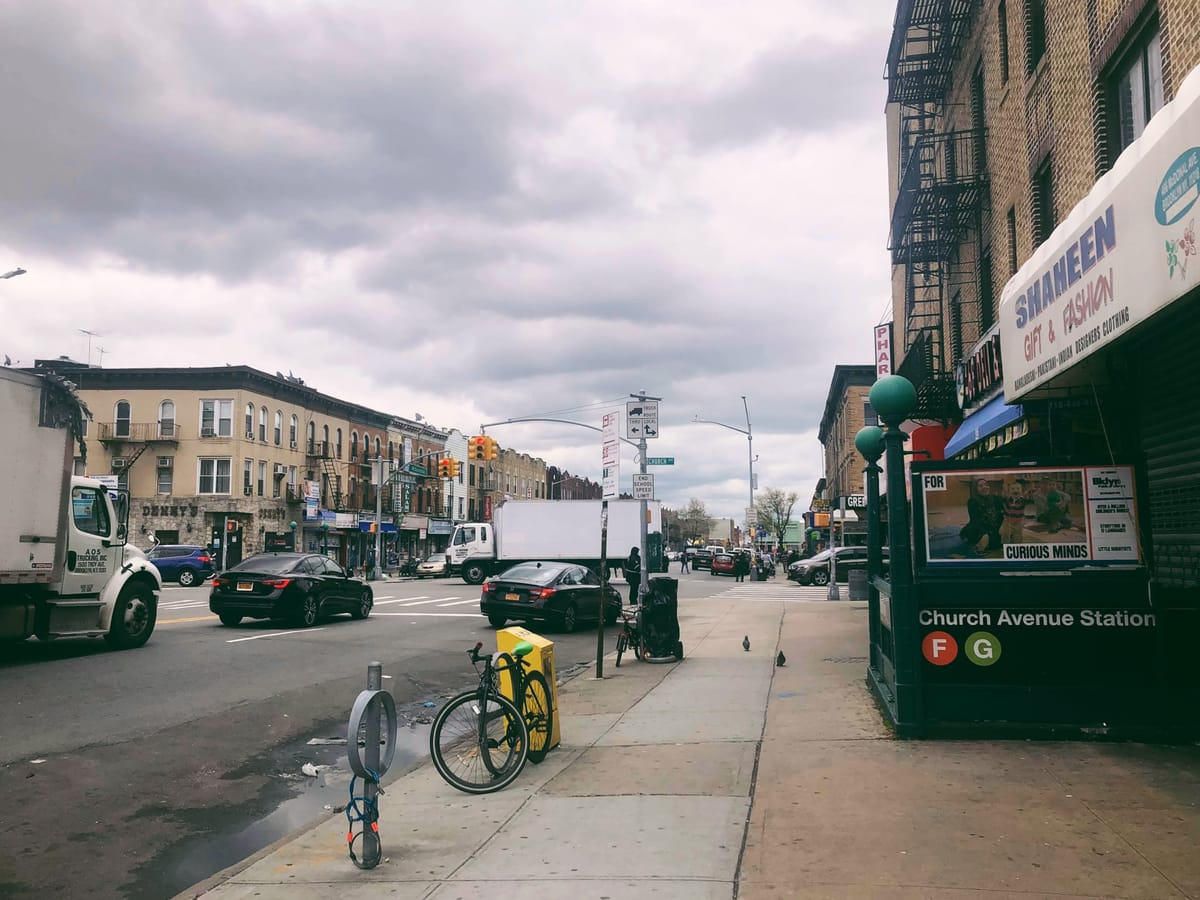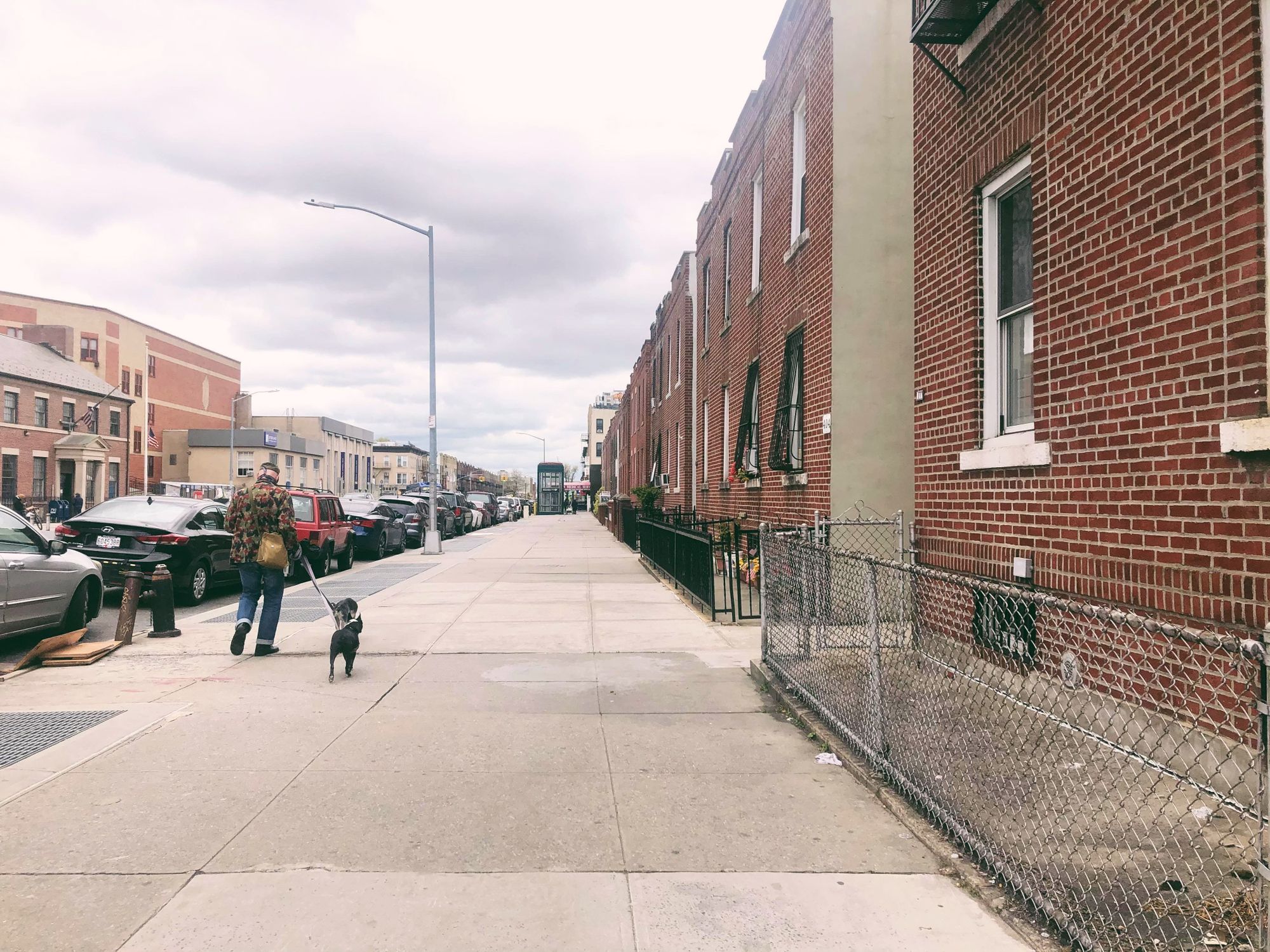Kensington/Windsor Terrace Mutual Aid: “If you need help, ask. If you have something to give, give.”


KENSINGTON/WINDSOR TERRACE – The once vibrant neighborhood filled with chatter and women walking by wearing shalwar kameez with every color in existence, is now a ghost town. People are grieving their loved ones that died because they couldn’t afford to stay at home amid the pandemic. There is no clapping, no banging of pots and pans at 7 p.m. People need aid, and the new Kensington/Windsor Terrace (KWT) Mutual Aid group is there to help.
KWT Mutual Aid launched on March 10, two weeks before the stay-at-home orders in NYC went into effect. Jerah Kirby, a neighbor, started the group by taking inspiration from the Occupy Sandy movement, a relief effort that was created to help the victims of Hurricane Sandy when the government wasn’t doing enough. Originally, the efforts were only focused on Kensington. After all, Kensington ranks in the top five neighborhoods in NYC lacking access to the internet and has a low average median household income. To address these inequities, the small group of initial members decided to partner up with another neighborhood — Windsor Terrace.
“We quickly realized it made sense to combine our efforts with more affluent neighborhoods like Windsor Terrace and bridge the Council District borders of Kensington, to share and redistribute the abundant resources present,” Aamnah Khan, the group’s coordinator told Bklyner. Khan, who is an active organizer in the Kensington community and is always somehow working on multiple things at once, has a role that consists of coordinating existing efforts, by facilitating meetings, communicating with a core group of volunteers to create structure, and establishing new partnerships. For Khan, KWT Mutual Aid is a dream come true.
“I’ve always wanted to organize with my neighbors outside of my existing circles and tap into their networks to support our neighbors and have deeper conversations about privilege and power,” she said.
The motto of the group is “If you need help, ask. If you have something to give, give.” This is how the group works: People donate money. The money then goes toward reimbursements for groceries/medications for those who cannot afford them. Money also goes toward supporting partner organizations and buying items in bulk at wholesale prices. Additionally, it serves as survival funds for those who have no income. Many of the requests right now are coming from folks who are undocumented from communities of color, those who are excluded from unemployment insurance, or those who are excluded from federal cash assistance. The group isn’t exclusive to just the Bangladeshi community. Flyers for KWT Mutual Aid were translated in 12 languages to represent the ethnic enclave that is Kensington.
The group has hundreds of volunteers – the entirety of the group is volunteer-based. Volunteers translate, shop and deliver groceries, fundraise, recruit more volunteers, update social media, develop the website, contact partner organizations, provide emotional support, and more.
“In the future, it might be worth considering what it’d mean to pay volunteers such as drivers as it is a privilege to be able to afford to work for free,” Khan noted. KWT Mutual Aid isn’t something that’s out of the ordinary. In fact, many neighbors have gotten together to create their own mutual aid groups in their neighborhoods, such as in Flatbush and Bed-Stuy. They’re stepping in and filling in where the government is failing.
“As Mariame Kaba notes, ‘Mutual aid is solidarity, not charity.’ Right now, we’re trying to do what is supposed to be the role of our government, which has failed us,” Khan said. “While we realize not providing direct services is not an option during this pandemic, we’re also trying to think about social action.”

“Though there is a history of groups like the Black Panthers having mutual aid networks, many of the current mutual aid networks have sprung out of this moment of crisis. And though we are acting out of this moment of crisis, that doesn’t mean it is the only way to be,” Khan said. “We understand that our emergency funds or supplies are not going to last forever. For these reasons, we are thinking about organizing rent strikes, signing petitions calling for rent and mortgage freeze, housing the homeless, or advocating for a bill to get cash assistance for those excluded from existing efforts.”
Like everyone else in the world, Khan is hoping the pandemic ends soon. But when it does, she’d like to believe that KWT Mutual Aid never does.
“Besides supporting our neighbors and organizing to build people power, my goal for this group is simply to exist post-pandemic,” she said. “This doesn’t have to look exactly like our current iteration as that can and will evolve, but I want the neighborhood network we once relied on to continue existing.”
“I don’t want us to resume to a ‘normal’ where we forget about the conditions of our neighbors. For everyone saying we can’t go back to the way things are in the pandemic, that would mean doing things differently than we’ve done in the past.”
To volunteer, donate, or request aid, visit the KWT Mutual Aid website.




